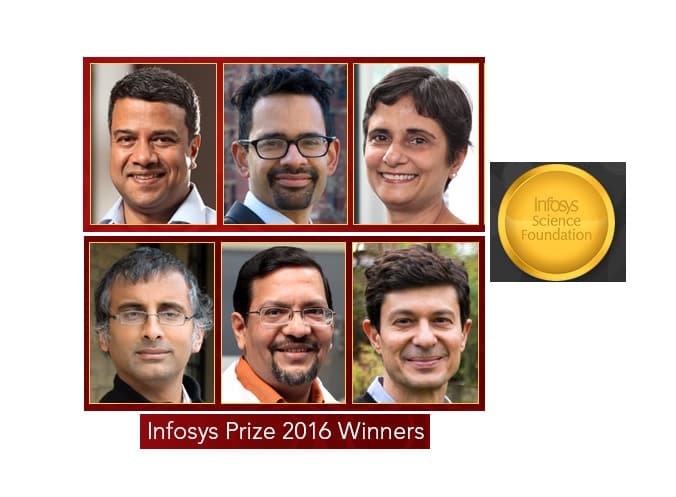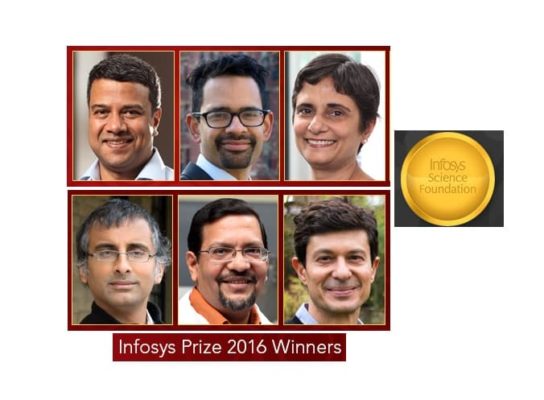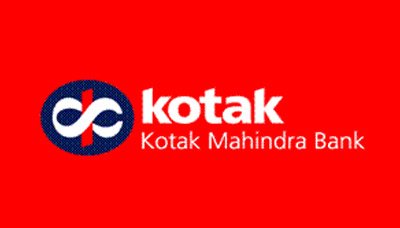
Bangalore – January 7, 2017/Team Estrade//– The Infosys Science Foundation (ISF) today honored the winners of the Infosys Prize 2016 at an awards ceremony in Bangalore and celebrated their inspiring journey and contributions to science and research. The Prize is given across six fields: Engineering and Computer Science, Humanities, Life Sciences, Mathematical Sciences, Physical Sciences and Social Sciences. The Chief Guest, Dr. Venkatraman Ramakrishnan, President of the Royal Society, Nobel Prize Laureate and Padma Vibhushan, felicitated the winners in six categories and awarded each laureate a purse of INR 65 lakhs, a 22-karat gold medallion and a citation certificate.
Trustees of the Infosys Science Foundation, Mr. S. D. Shibulal, President of the Board of Trustees, Mr. N. R. Narayana Murthy, Mr. Mohandas Pai, Mr. Kris Gopalakrishnan, Mr. Srinath Batni and Mr. K. Dinesh, were present at the event. The event was also well attended by eminent scientists and leaders from different industries and academia.

In his welcome address, S.D. Shibulal, President, Board of Trustees, Infosys Science Foundation said, “We are here to celebrate the extraordinary talent of the Infosys Prize 2016 winners whose remarkable work endeavours to solve challenges across scientific, social and economic domains. The work done by this year’s winners traverses boundaries between various disciplines. Their research spans the areas of planetary exploration, broad ranging mathematical theories, human migration and community networks and vaccinations for infectious diseases. Just as their work is multi-disciplinary, it is also multi-geographical in its impact. We at the Infosys Science Foundation are very proud of all the winners and their excellent contributions that will benefit many, across borders and across time, not just in this present moment. I urge you all to read about their work and encourage students and young researchers to be curious and dream big. Research today, is a very exciting space.”
Dr. Venkatraman Ramakrishnan, President of the Royal Society and Nobel Prize Laureate congratulated the winners and commended the extraordinary work that the Infosys Science Foundation is doing to encourage scientific research in India. Speaking on the occasion, Dr. Ramakrishnan said, “In a complex and technological world, it is increasingly important for all of us to understand the basis of science and technology, and to distinguish evidence-based facts from speculation and myth. Scientists work quietly to advance the state of our understanding in areas from pure mathematics and physics all the way to medicine and engineering, and the Infosys prize is a nice way to recognize the work of some leading scientists and stimulate public interest in science.”
The winners were chosen from over 250 nominations by six renowned jury chairs: Prof. Pradeep K. Khosla (University of California San Diego) for Engineering and Computer Science; Prof. Amartya Sen (Harvard University) for Humanities; Dr. Inder Verma (Salk Institute of Biological Sciences) for Life Sciences; Prof. Srinivasa S. R. Varadhan (New York University) for Mathematical Sciences; Prof. Shrinivas Kulkarni (California Institute of Technology) for Physical Sciences; and Prof. Kaushik Basu (Cornell University) for Social Sciences.
The winners of Infosys Prize 2016 are:
Engineering and Computer Science
Prof. V. Kumaran, Professor, Department of Chemical Engineering, Indian Institute of Science (IISc), Bangalore, India
Prof. V Kumaran’s work in fluid flows in soft-walled tubes is important in developing innovative technologies for lab-on-a-chip devices especially in the field of cardiovascular health. These devices help deliver timely diagnoses that could help save lives.
Humanities
Prof. Sunil Amrith, Mehra Family Professor of South Asian Studies, Professor of History, Harvard University, Cambridge, USA
Prof. Sunil Amrith is a historian who studies the interconnected histories of South and South-East Asia. His books deal with the rich history of human migration in this region. Prof. Amrith’s work particularly deals with the lived experience of migration, its effects and consequences.
Life Sciences
Prof. Gagandeep Kang, Executive Director of Translational Health Science and Technology Institute (THSTI), Faridabad, India
Prof. Gagandeep Kang’s pioneering work has contributed to a better understanding of the natural history of the deadly rotavirus which causes numerous infant deaths in India and around the world. Her work is crucial to synthesizing effective vaccines against these infectious diseases as well as in designing public health policies that could help prevent them.
Mathematical Sciences
Prof. Akshay Venkatesh, Professor, Department of Mathematics, Stanford University, USA
Prof. Akshay Venkatesh is a number theorist whose work encompasses techniques drawn from analytic number theory, ergodic theory, and homotopy theory. Prof. Venkatesh looks for new patterns in whole numbers. His work has helped explain a number of puzzling phenomena and in doing so, has articulated the essential unity of mathematics.
Physical Sciences
Dr. Anil Bhardwaj, Director, Space Physics Laboratory, Vikram Sarabhai Space Centre, Thiruvananthapuram, India
Dr. Anil Bhardwaj, a planetary scientist, is the only Indian scientist who has had a payload in every Indian space mission. His experiments on Chandrayaan 1 and Mars Orbiter Mission have revealed new insights into solar wind interactions on the lunar surface and yielded exciting new information about the Martian atmosphere. He also attempts to understand our own planet and its journey through time.
Social Sciences
Prof. Kaivan Munshi, Frank Ramsey Professor of Economics, Faculty of Economics, University of Cambridge, UK
Prof. Kaivan Munshi is an economist whose research shows the complex role of informal community networks in the process of economic development. This work is important because, when markets function imperfectly, networks of socially connected individuals can both hinder and enhance economic efficiency in complex ways. He uses a combination of rigorous econometric analysis and attention to social and historical detail that is rare in economics.
Source: https://www.infosys.com/newsroom
Infosys Prize Awards Six Top Researchers





